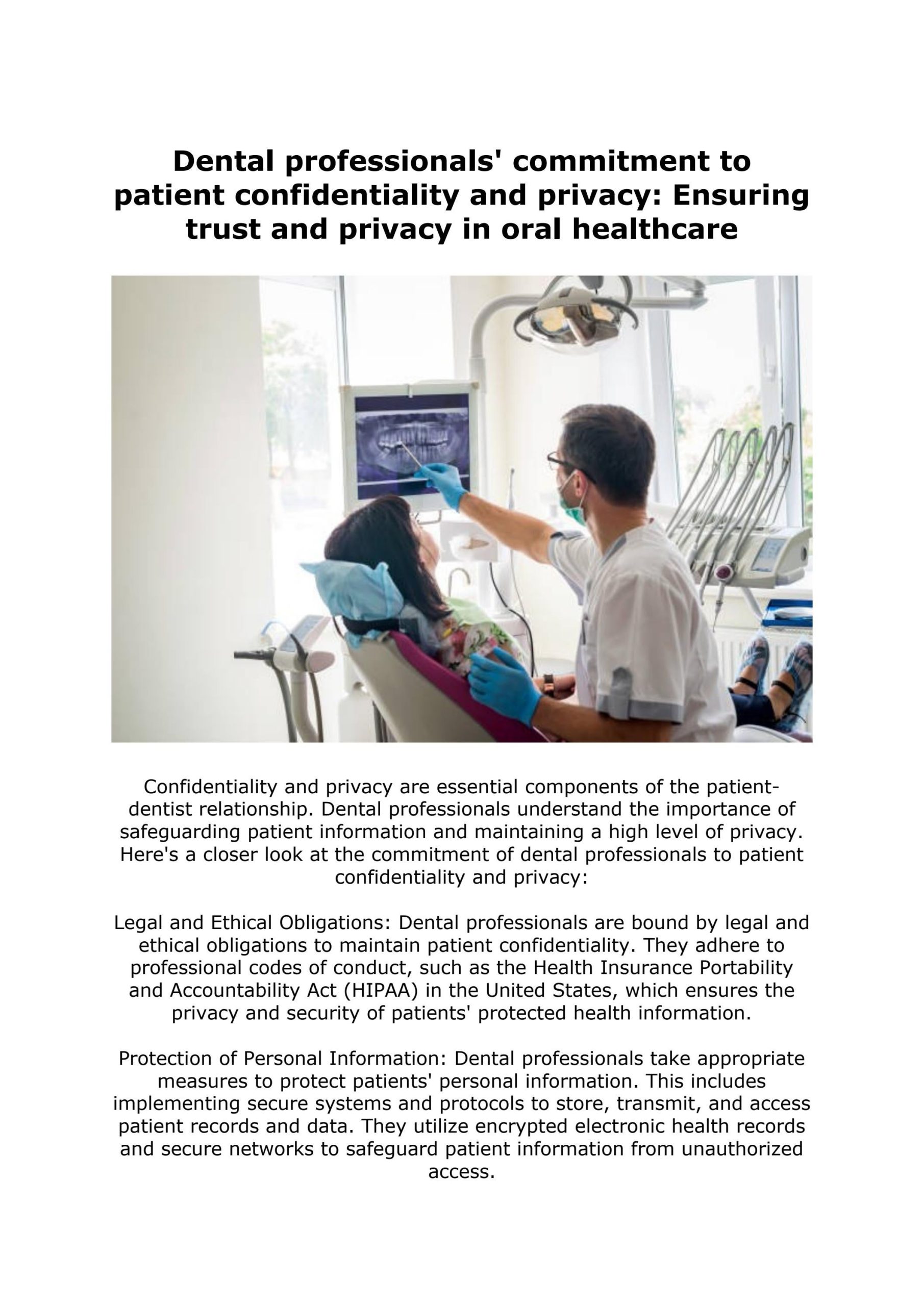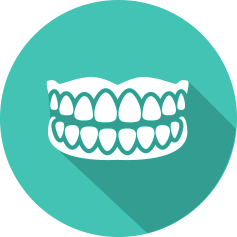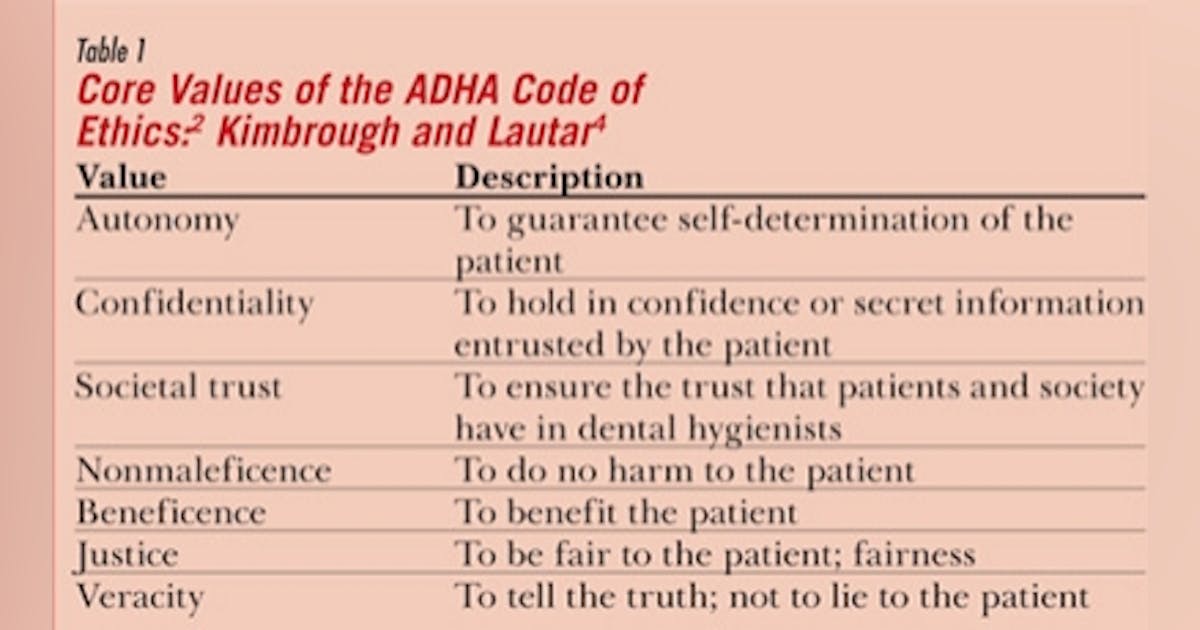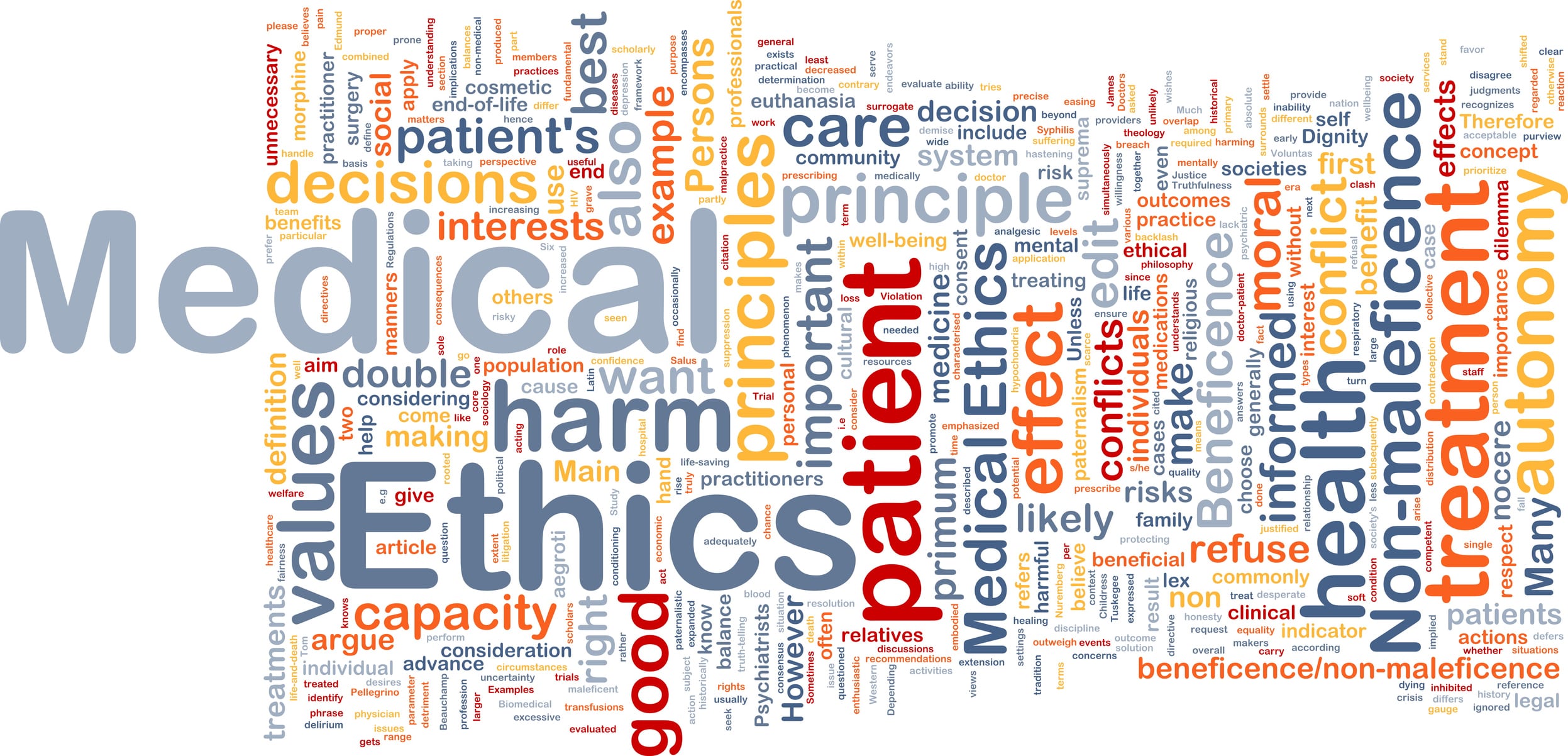Introduction
In the field of dentistry, patient confidentiality is of utmost importance. Dentists and dental professionals have a responsibility to protect the personal and medical information of their patients. This article explores the ethical considerations and best practices for maintaining confidentiality in dentistry.
The Importance of Confidentiality
Confidentiality is crucial in dentistry as it establishes trust between the patient and the dental professional. Patients need to feel confident that their personal information, including medical history, treatment plans, and financial details, will be kept private. Breaching patient confidentiality can lead to legal consequences, damage the reputation of the dental practice, and erode patient trust.
Legal and Ethical Obligations
Dental professionals are bound by legal and ethical obligations to maintain patient confidentiality. Laws such as the Health Insurance Portability and Accountability Act (HIPAA) in the United States and the Data Protection Act in the United Kingdom provide guidelines for handling patient information. Dentists must ensure that their practices comply with these regulations to protect patient privacy.
Securing Patient Information
There are several measures that dental practices can take to secure patient information:
1. Access Control
Limiting access to patient records is essential. Only authorized personnel should have access to patient information, and access should be granted on a need-to-know basis. Implementing secure login systems and password protection can help prevent unauthorized access.
2. Physical Security
Physical security measures, such as locked filing cabinets and restricted access to patient areas, can prevent unauthorized individuals from accessing patient records. Additionally, sensitive documents should be shredded or securely stored when no longer needed.
3. Data Encryption
Encrypting patient data can provide an extra layer of protection. This ensures that even if the data is intercepted, it cannot be accessed without the encryption key. Dental practices should invest in secure software and systems that offer encryption capabilities.
4. Training and Education
Proper training and education of dental staff are crucial in maintaining patient confidentiality. All staff members should be aware of the importance of confidentiality and the procedures in place to protect patient.
Summary
Confidentiality is crucial in dentistry to establish trust between patients and dental professionals. Patients share sensitive information about their oral health, medical history, and personal details during dental visits. It is the ethical duty of dental practitioners to safeguard this information and ensure its confidentiality.

Protecting patient information involves various measures, including secure record-keeping systems, restricted access to patient files, and strict protocols for sharing information. Dental practices must comply with legal requirements, such as the Health Insurance Portability and Accountability Act (HIPAA) in the United States, to maintain patient confidentiality.
Furthermore, dental professionals should prioritize informed consent and educate patients about how their information will be used and protected. This transparency helps build a strong patient-dentist relationship based on trust and respect.
In conclusion, confidentiality is a vital aspect of dentistry that must be upheld to protect patient privacy and maintain professional ethics. Dental practices should implement robust systems and protocols to ensure the secure handling of pa go to my blog tient information. By doing so, we can create a safe and trustworthy environment for our patients, fostering a positive dental experience for all.
- Q: What is confidentiality in dentistry?
- A: Confidentiality in dentistry refers to the ethical obligation of dental professionals to protect and keep patient information private and secure.
- Q: Why is confidentiality important in dentistry?
- A: Confidentiality is important in dentistry to build trust between patients and dental professionals, maintain patient privacy, and comply with legal and ethical standards.
- Q: What type of patient information should be kept confidential?
- A: All patient information, including personal details, medical history, treatment records, and financial information, should be kept confidential.
- Q: How is patient information protected in dentistry?
- A: Patient information is protected through secure storage systems, password-protected electronic records, limited access to patient files, and adherence to privacy policies and procedures.
- Q: Can dental professionals share patient information with others?
- A: Dental professionals can only share patient information with the patient’s consent or when required by law, such as reporting certain communicable diseases.
- Q: What are the consequences of breaching patient confidentiality?
- A: Breaching patient confidentiality can result in legal and ethical consequences, damage to professional reputation, loss of patient trust, and potential lawsuits.
- Q: How can patients ensure their information is kept confidential?
- A: Patients can ensure their information is kept confidential by choosing reputable dental professionals, discussing privacy concerns with their dentist, and reviewing the dental practice’s privacy policies.

Welcome to my website! My name is Cameron Nicoll, and I am a dedicated and passionate Dental Lab Technician with a strong focus on Clear Aligner Therapy, Dental Ethics, and Dental Research. With years of experience in the field, I am committed to providing valuable insights and information to fellow professionals, patients, and anyone interested in the world of dentistry.




